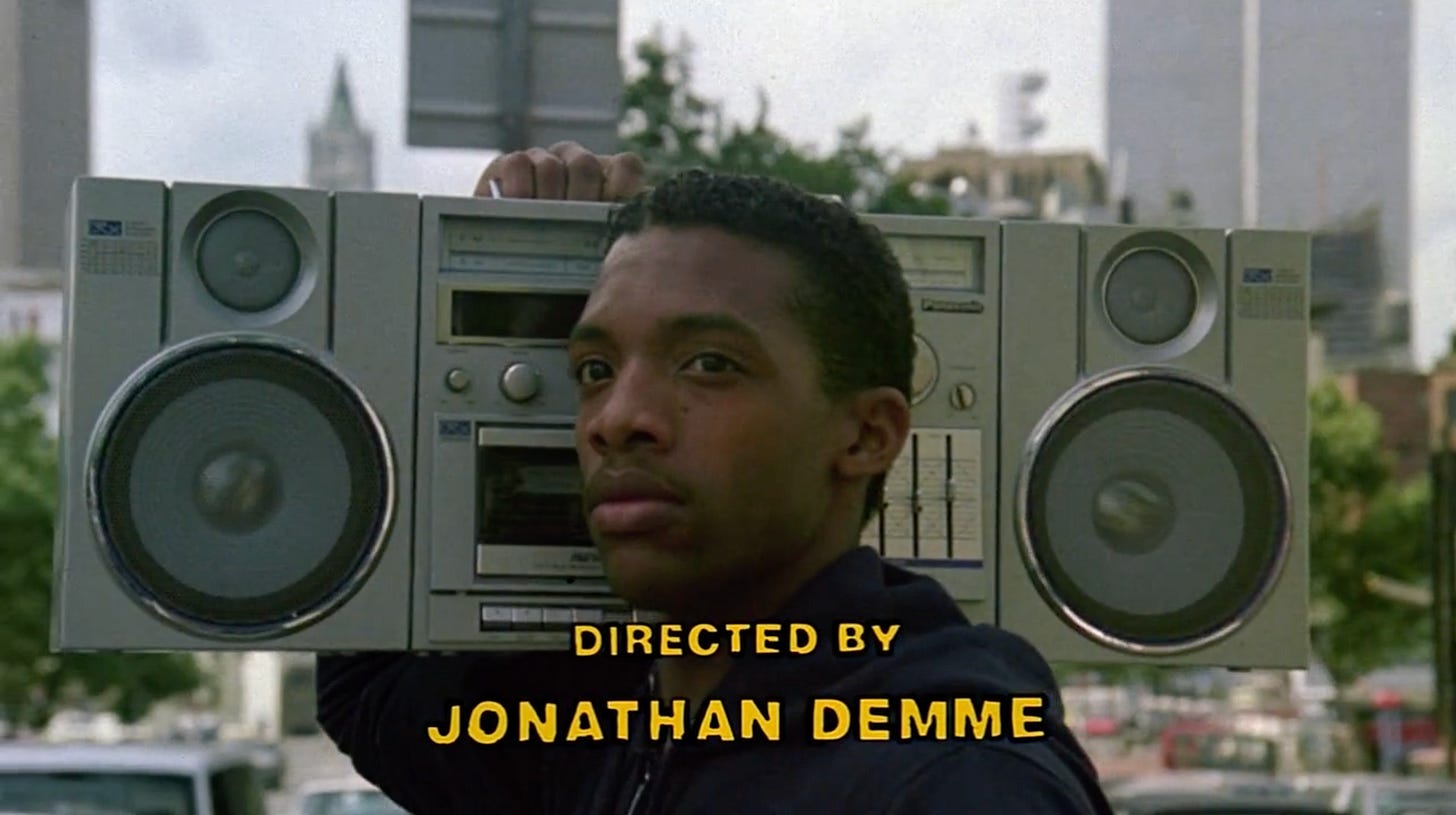Further thoughts
One thing I didn’t get into in my Slant review (excerpted and linked below) of Paul Thomas Anderson’s latest is the film’s indebtedness to/pale imitation of Jonathan Demme. PTA has long acknowledged his love of Demme’s work: The late filmmaker’s son Brooklyn is among One Battle After Another’s cast, and the overall tone of the movie suggests a melding of Demme’s blissful whirligig Crazy Mama (1975) with his nonpareil yuppie-era burlesque Something Wild (1986). Demme’s talent was such that he could empathetically elevate bit players to center stage. I can quickly call to mind, say, One Flew Over the Cuckoo’s Nest’s Will Sampson standing stoic at a rest stop in Crazy Mama or the boombox-bearing extra who enters and exits under Demme’s directorial credit in Something Wild. Whether onscreen for a few seconds or the majority of the runtime, the people in a Demme movie feel complicated and alive. At a glance, you can intuit their essence and revel in their mystery, .
Days removed from One Battle, I find the background players and supporting cast blurring insubstantially together — a sad thing when so many of them are playacting some of the worst current real-life scenarios (ICE detention; protests gone violent) in support of substandard satire. What might Demme have done with the nonbinary character who turns traitor? He certainly wouldn’t have made them, first and foremost, a schematic sight gag, one that encourages the sympathetic and the hostile alike toward two-sides-of-the-same-coin disdain. And I sense a similar approach to Teyana Taylor’s Perfidia, who compellingly dominates the movie’s first act before being callously cast aside, her unsavory facets left to fester and define her, curdling as opposed to illuminating what should be a thornily conflicted spirit. This wreaks havoc with her climactic return in voiceover. What should be a cathartic zenith is ultimately rendered feeble, forced…and further undermined, too, because PTA is clearly more entranced by his bad-behaving boy-men, a predilection — and not always for the worse — since Punch-Drunk Love (2002). Final insult: The last-scene needle-drop of Tom Petty and the Heartbreakers’s “American Girl.” That belongs to The Silence of the Lambs (1991), a genuine USA-off-its-axis masterwork. And the way it’s utilized here to coerce a sociopolitical-cum-emotional sublimity that the film in no way earns makes me cringe.
Slant review
Paul Thomas Anderson’s dark comedy One Battle After Another turns overreaching into an art form. Scene by scene, this “loose adaptation” (per the end credits) of Thomas Pynchon’s 1990 novel Vineland strains to be a two-hour-and-41-minute statement about the times we live in. Yet despite its whirling-dervish referencing of immigrant scapegoating, political polarization, and white supremacist machismo, the film never expands from its carnivalesque surface to truly delve into the tangled sociopolitical murk of our moment.
Pynchon’s novel explored the ’60s hangover via an ’80s-set story about aging California hippies-cum-revolutionaries. (And given that Pynchon’s prose tends toward arcane absurdity, “story” should be taken with a grain of salt.) Anderson places his own sprawling narrative within something akin to an eternal present. The migrant detention center in the opening sequence could be any old pop-up ICE facility in your current sanctuary city of choice. No year is given, though the sense of it being now (or “now,” in a sort of Escape from New York way) is very prevalent. Yet if “what has happened before happens again and again and again” is the thematic aim, Anderson proves unable or unwilling to make the barbed wire trenchantly rend flesh.


